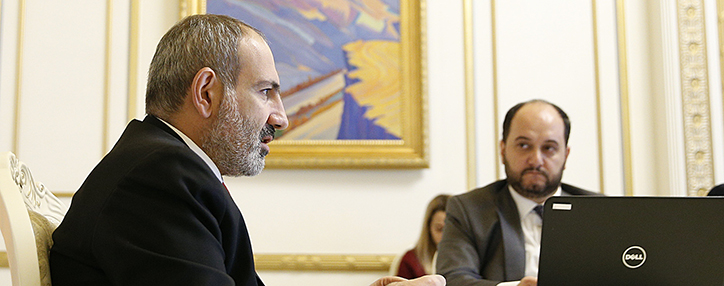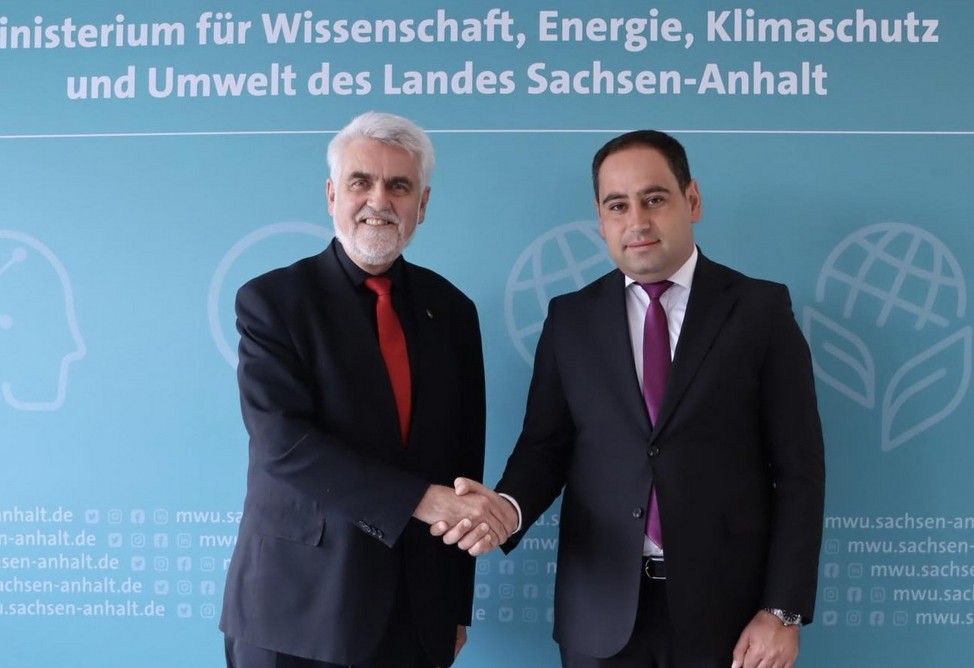Armenian government set to fundamentally reform education system
18.11.2019,
19:31
Armenian Prime Minister Nikol Pashinyan had a meeting on Monday to discus a draft law “On Higher Education and Science”, the press service of the government reported.

YEREVAN, November 18. /ARKA/. Armenian Prime Minister Nikol Pashinyan had a meeting on Monday to discus a draft law “On Higher Education and Science”, the press service of the government reported.
It quoted Pashinyan as saying that the draft law is an important document. He added that the need for it was caused, first of all, by serious problems in the education system of the country. According to Pashinyan, the current educational system does not ensure the development of the country and does not meet the aspirations and ambitions of the people.
Pashinyan emphasized that the government will make decisive, fundamental and consistent changes to reform the education system and no one will be able to hamper it.
He said it is clear that the current system cannot continue any longer, however, the government should not only reform the system, but reform it in such a way as to ensure not only the country's normal development, but also to narrow the gap between Armenia's education system and the changes that have taken place in the global educational system.
Minister of Education, Science, Culture and Sports Araik Harutyunyan noted that the draft law calls for integrating higher education and science systems, for the transition to a single-stage system of awarding academic degrees and the full implementation of a three-stage system of higher education.
According to him, the draft law provides also for the replacement of the full-time and part-time education with full and partial workload. It also envisages teaching of separate courses in foreign languages, introduction of new principles and mechanisms for entering universities, as well as depoliticizing universities.
The draft law calls also for introduction of new principles and mechanisms for financing higher education and science, for self-government of universities and scientific organizations, academic freedoms and reporting, stimulating the influx of young personnel into the administrative structures of scientific organizations and academic staff.
Pashinyan emphasized a comprehensive discussion of the draft law with all interested parties and noted that as a result, a conceptual solution to the problems existing in the fields of education and science should be formed. -0-
It quoted Pashinyan as saying that the draft law is an important document. He added that the need for it was caused, first of all, by serious problems in the education system of the country. According to Pashinyan, the current educational system does not ensure the development of the country and does not meet the aspirations and ambitions of the people.
Pashinyan emphasized that the government will make decisive, fundamental and consistent changes to reform the education system and no one will be able to hamper it.
He said it is clear that the current system cannot continue any longer, however, the government should not only reform the system, but reform it in such a way as to ensure not only the country's normal development, but also to narrow the gap between Armenia's education system and the changes that have taken place in the global educational system.
Minister of Education, Science, Culture and Sports Araik Harutyunyan noted that the draft law calls for integrating higher education and science systems, for the transition to a single-stage system of awarding academic degrees and the full implementation of a three-stage system of higher education.
According to him, the draft law provides also for the replacement of the full-time and part-time education with full and partial workload. It also envisages teaching of separate courses in foreign languages, introduction of new principles and mechanisms for entering universities, as well as depoliticizing universities.
The draft law calls also for introduction of new principles and mechanisms for financing higher education and science, for self-government of universities and scientific organizations, academic freedoms and reporting, stimulating the influx of young personnel into the administrative structures of scientific organizations and academic staff.
Pashinyan emphasized a comprehensive discussion of the draft law with all interested parties and noted that as a result, a conceptual solution to the problems existing in the fields of education and science should be formed. -0-



